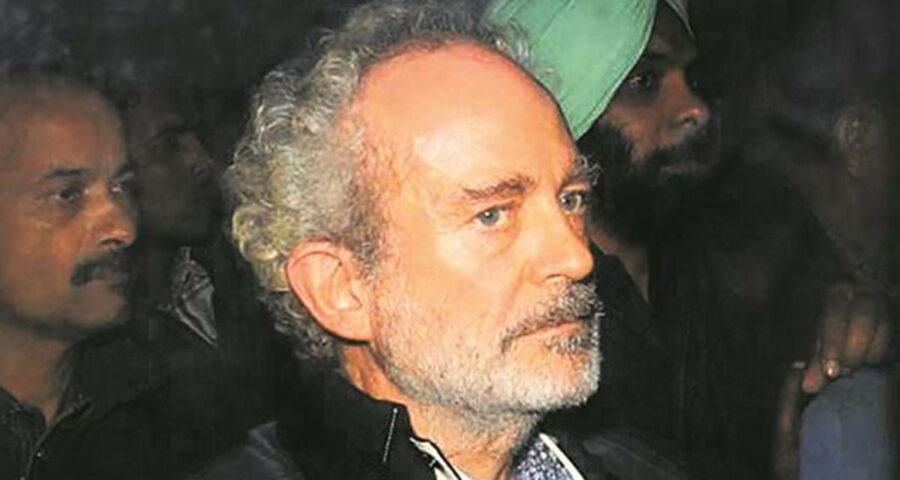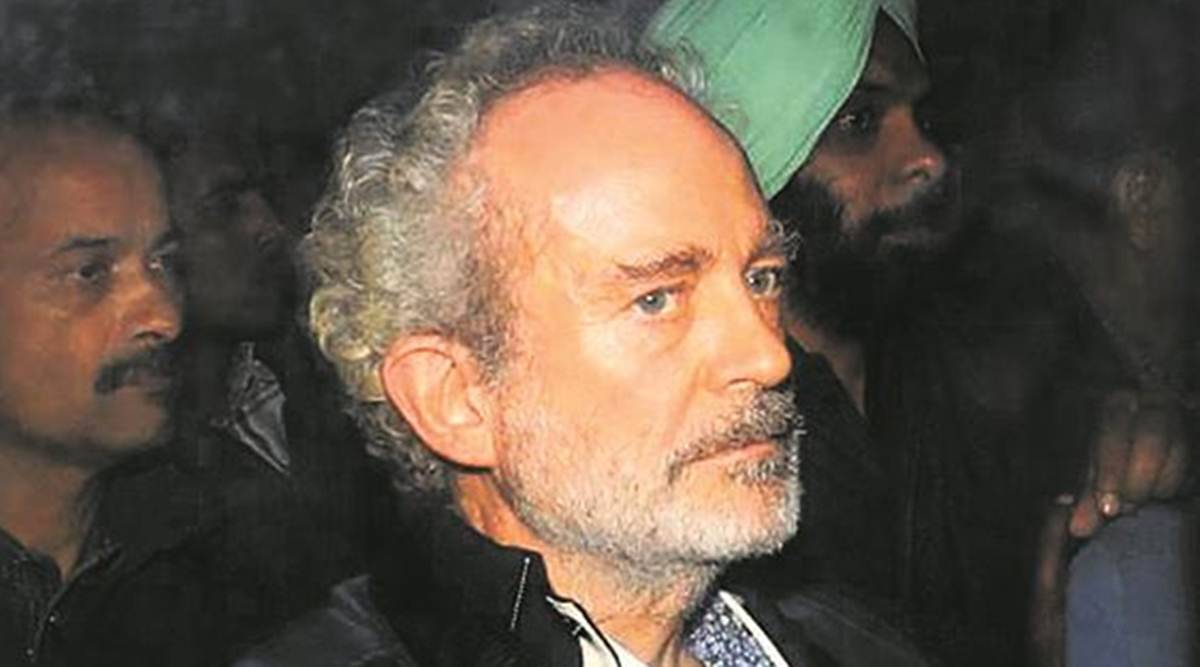🔴 While Michel awaits trial in Tihar jail, The Indian Express has accessed the voluminous report on his interrogation by the Enforcement Directorate, in which he claims how he lobbied with the then UPA Government when, as he describes it, the deal was “on the edge of the cliff” before it was pushed through in 2010.
December 4 will mark three years since British arms agent Christian Michel was extradited from Dubai as the most high-profile suspect in the alleged bribery scam linked to the Rs 3,600-crore AgustaWestland helicopter deal. Since then, he has been engaged in a legal tussle with investigating agencies to obtain bail and has refused to part with more documentary evidence.
While Michel awaits trial in Tihar jail, The Indian Express has accessed the voluminous report on his interrogation by the Enforcement Directorate, in which he claims how he lobbied with the then UPA Government when, as he describes it, the deal was “on the edge of the cliff” before it was pushed through in 2010.
Michel claims, records show, that the VVIP helicopter deal with the Italian defence firm was almost called off due to pressure from the Americans and Russians (The S-92 helicopter of US firm Sikorsky and the Russian Mi-172 were competitors to AugustaWestland) as well as objections from the Finance Ministry which he calls “silly” and “stupid.”
The interrogation report reveals frantic efforts of middlemen and diplomats — in a rare case, it was presented to the Cabinet Committee of Security (CCS) twice.
For instance, in August 2009, Michel claimed in a dispatch from New Delhi to AgustaWestland headquarters: “We had to practically engage the entire Cabinet which is ridiculous on such a small deal.” Questioned about this dispatch, Michel told Indian investigators that it was British diplomats who said this because of their “interventions” and that it could have been “exaggerated for effect.”
In mid-2009 following diplomatic pressure, Michel wrote in a dispatch to his bosses, the then Prime Minister Manmohan Singh asked his Cabinet Ministers to put up any objections they may have to the deal. Wary that this could put a question mark on the deal itself, Michel wrote in despatches to his bosses: “We know the Indian Prime Minister had thrown this business open for all the Ministers to look at…What happened for me was a nightmare…the statement (of the Prime Minister) threw us to the wolves…”
In another dispatch, he wrote: “Our project was on the edge of the cliff. None of the so-called supporters (agents) offering help had any idea what the problem was and how to fix it. It seems to me we are the only ones who even knew that our file had gone to the CCS once already.”
Once the bribery scam came to light, India cancelled the AgustaWestland contract in 2014.
Michel was accused of receiving Euro 42 million of the alleged kickbacks, mainly through his Dubai-based companies, and extradited to India on December 4, 2018.
Subsequently, the ED conducted his custodial interrogation for two weeks between December 22, 2018, and January 5, 2019. Since then, he has been questioned by ED sleuths several times in Tihar jail, even till end 2020.
Through all this, the British national has been expansive on his early forays in the arms trade guided by his father, Wolfgang Michel; the deals he clinched; and the political and diplomatic turmoil over the VVIP chopper deal.
But he has also cited “duress” to deny crucial bits of evidence in the bribery scam. And despite frequent rounds of questioning in Tihar Jail, he has not yet handed over the required corroborative evidence and crucial banking details.
During a round of early questioning in January 2019, Michel explained his failure to provide financial details: “I am not being obstructive. She (reference to an accountant or banker) is not satisfied as to whether I am under duress. The more I push for bank statements the more people resist. I need to explain what I want, in a controlled environment, not in a panic…”
Michel, however, has not denied several transactions, which include outflows to those he has identified as his girlfriends and ex-wife, and for other expenses such as his children’s school fees and purchase of furniture. He has also listed six properties that he purchased in Dubai, Germany, London and Brazil, mostly after the helicopter deal was done.
On questions that he received “kickbacks” of between 7-10 per cent of the value of the deal while and the other middleman, Guido Haschke, received 5 per cent, Michel told interrogators: “That would mean the whole deal incurred maximum 15 per cent commission. No Western manufacturer could bear such a high figure. As it was, AgustaWestland thought they were losing money. I was not paid a commission. None has a figure in mind…”
He added: “ If I was paid a commission, and I was not, why was I paid more, even double than Haschke. He would never accept it…”
Significant among denials by the middleman are those about the “budget-sheet” of alleged bribes paid for the deal, which was first reported by The Indian Express. The sheet was recovered by the Swiss police from the house of Irma Haschke, the mother of Guido Haschke.
Confronted with the sheet, Michel pointed out that Haschke told the Italian authorities probing the deal that he (Michel) had dyslexia but still claimed that he wrote the final paras of what he has described as the “share split note”. (Tomorrow: The “aggressiveness” of Americans and how Russians saw this as a “must-stop deal”)
Source: Read Full Article


